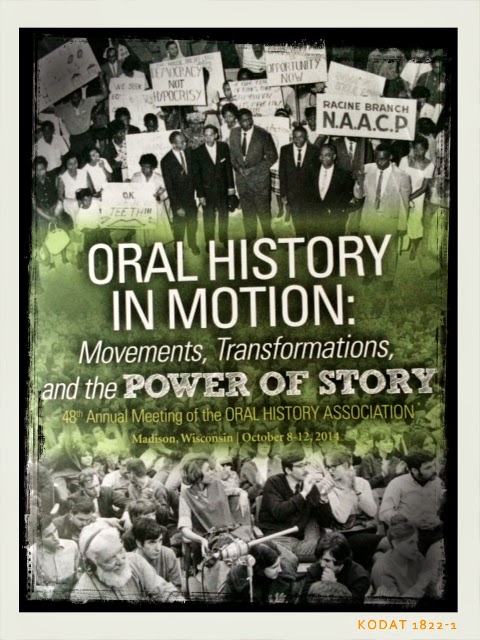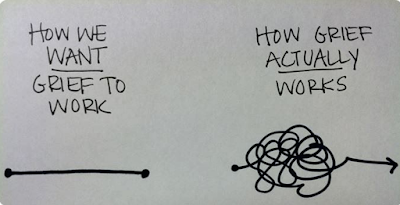Since when were the Gardaí on the other side of the Northern Ireland conflict?
Today, the International Coalition of Sites of Conscience announced its grant awards for 2016.
One grant was awarded to an organization called Diversity Challenges, whose mission is "to assist culturally specific groups in integrating community relations principles and considerations within all aspects of their work."
According to the Sites of Conscience the grant will fund “Voices from the Vault,” a project that collects stories from former police officers in two police forces on either side of the (Northern Ireland) conflict. The work is groundbreaking in the sense that it is uncommon for state agents in any dispute to talk about their experiences."
Ummmm, what?
As a public historian, I tend to dismiss academics who get petty about semantics. They always seem to have an air of the kid in the front of the room just dying to get the answer right. (The kid waving their hand in the air so hard you think they might pee themselves.)
As an historian of Northern Ireland, though, this term "on both sides of the conflict" jarred.
An expert on the peace process, the late John Darby explained, the conflict was a low intensity triangulated one. "The protagonists were the British state (represented by its army, locally recruited regiments and a militarized police force), republican paramilitaries (mainly the PIRA, but including smaller groups like the Irish National Liberation Army (INLA)) and loyalist paramilitaries (the Ulster Defence Association/Ulster Freedom Fighters (UDA/UFF) and the Ulster Volunteer Force (UVF))."
There. Was. No. Police. Force. On. The. Other. Side. Of. The. Conflict.
There were NOT TWO SIDES TO THE CONFLICT.
Of course, what this means is that Diversity Challenges will interview members of the Gardai Síochána, the Irish name for the police forces of the Republic of Ireland. Not a bad idea. (Although fabulous border work has already been done by Catherine Nash and Bryonie Reid.)
It's been less than 20 years since the Good Friday Agreement. In the face of Brexit, the situation is in Northern Ireland is more fragile than it has been in a decade. For organizations to run fast and loose with language around complicity and the shape, tenor and history of the conflict ----- and for funders to support them in this ----- is just plain wrong.
It offends people. It denies history. It recasts the conflict.
It also smoothes, reshapes, redefines and remodels the past in a way that is at odds with both history and historical consciousness.
Someone should change it.
I'll put my hand down now.
 |
| Photo courtesy of SHOUT |
According to the Sites of Conscience the grant will fund “Voices from the Vault,” a project that collects stories from former police officers in two police forces on either side of the (Northern Ireland) conflict. The work is groundbreaking in the sense that it is uncommon for state agents in any dispute to talk about their experiences."
Ummmm, what?
As a public historian, I tend to dismiss academics who get petty about semantics. They always seem to have an air of the kid in the front of the room just dying to get the answer right. (The kid waving their hand in the air so hard you think they might pee themselves.)
As an historian of Northern Ireland, though, this term "on both sides of the conflict" jarred.
An expert on the peace process, the late John Darby explained, the conflict was a low intensity triangulated one. "The protagonists were the British state (represented by its army, locally recruited regiments and a militarized police force), republican paramilitaries (mainly the PIRA, but including smaller groups like the Irish National Liberation Army (INLA)) and loyalist paramilitaries (the Ulster Defence Association/Ulster Freedom Fighters (UDA/UFF) and the Ulster Volunteer Force (UVF))."
There. Was. No. Police. Force. On. The. Other. Side. Of. The. Conflict.
There were NOT TWO SIDES TO THE CONFLICT.
Of course, what this means is that Diversity Challenges will interview members of the Gardai Síochána, the Irish name for the police forces of the Republic of Ireland. Not a bad idea. (Although fabulous border work has already been done by Catherine Nash and Bryonie Reid.)
It's been less than 20 years since the Good Friday Agreement. In the face of Brexit, the situation is in Northern Ireland is more fragile than it has been in a decade. For organizations to run fast and loose with language around complicity and the shape, tenor and history of the conflict ----- and for funders to support them in this ----- is just plain wrong.
It offends people. It denies history. It recasts the conflict.
It also smoothes, reshapes, redefines and remodels the past in a way that is at odds with both history and historical consciousness.
Someone should change it.
I'll put my hand down now.








Well said, Dr. Shea.
ReplyDelete